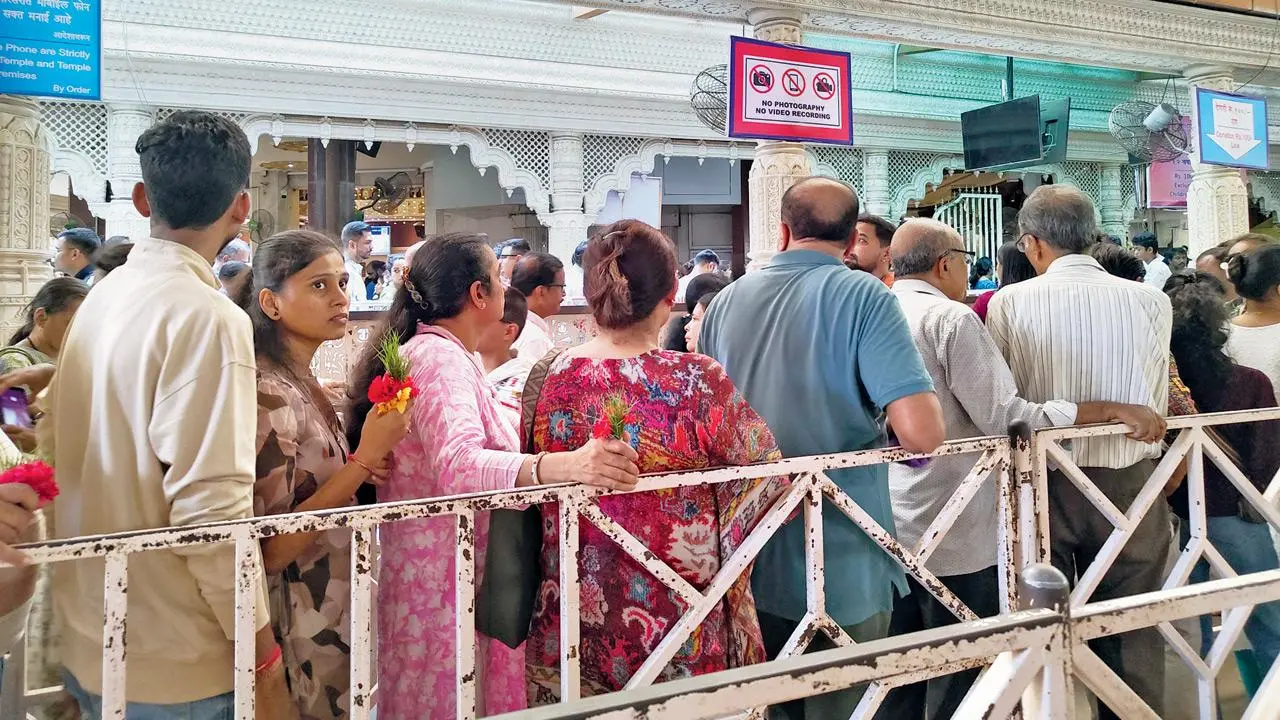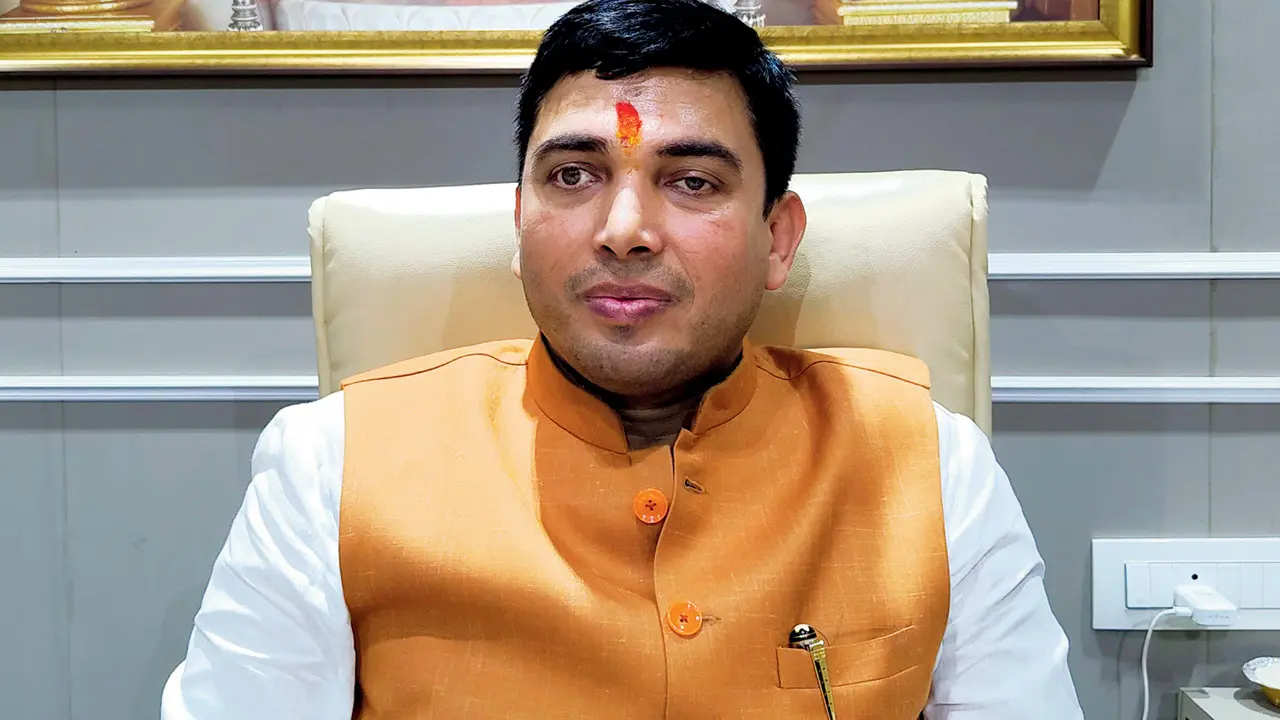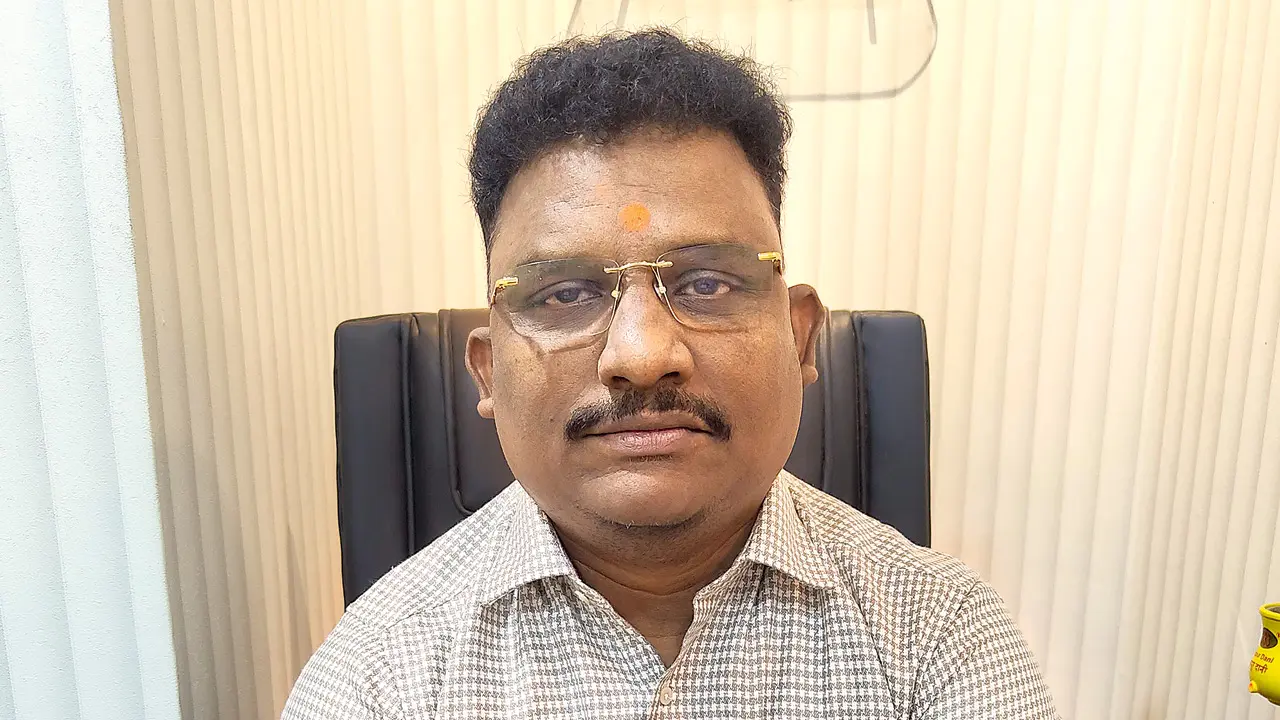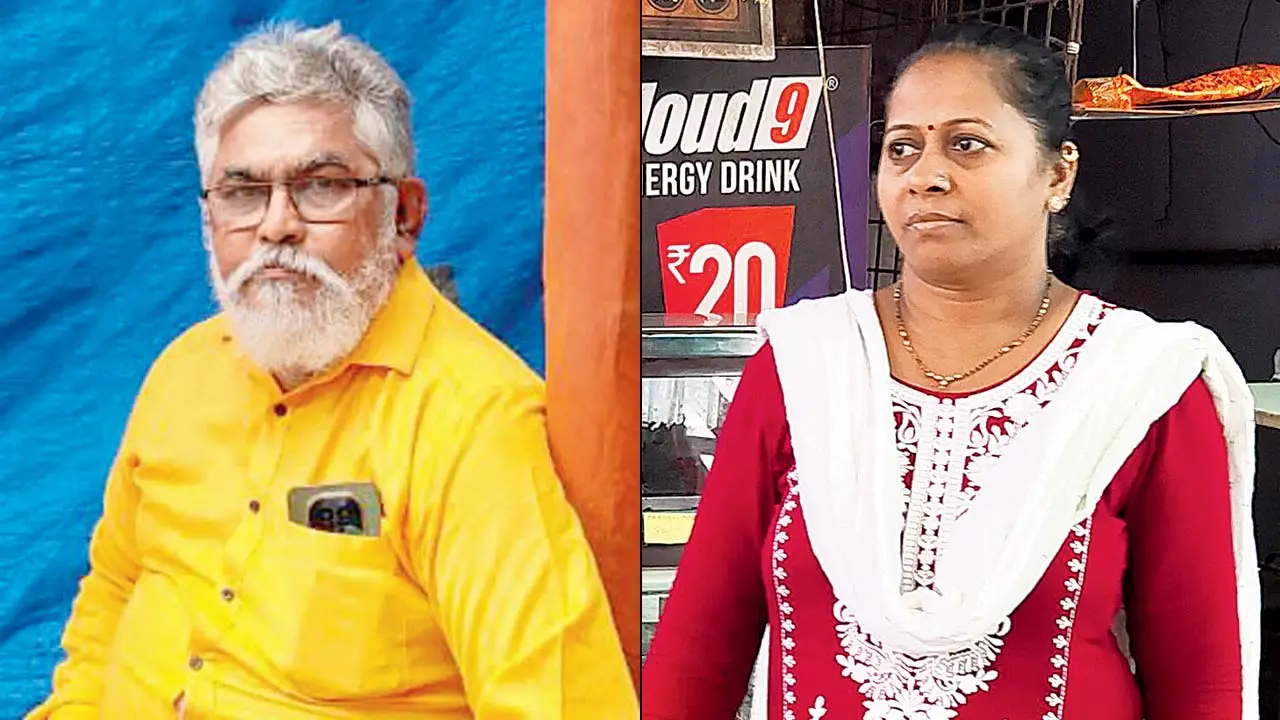Vendors hit by Siddhivinayak Temple’s indefinite halt on offerings, question logic of selective restrictions amid high security presence; MNS leader Yashwant Killedar has hinted at taking action if the ban extends beyond four to five days

Huge crowd of devotees visit Siddhivinayak Temple on Monday with offerings of only hibiscus flowers instead of coconuts and garlands
As a result of the ongoing tensions between India and Pakistan, several security measures have been taken at multiple levels across the city. Since Siddhivinayak Temple in Prabhadevi has been repeatedly placed as one of the locations on the threat radar by the Mumbai police, the temple authority has stopped the sale of some offerings that include coconuts, sweets, and big garlands.
What’s banned?
“We were advised by the Mumbai police to take measures that will lead to quick movement of people and will ensure that no huge crowd is gathered at the gabhara (sanctum sanctorum) for longer durations. Thus, we conducted a meeting and decided that if we ban these offerings, it will make people take darshan and move quickly instead of them making the offering, waiting there to take back the offered coconuts in the form of prasad and then moving out of the gabhara,” said Pawan Tripathi, treasurer of Siddhivinayak Temple Committee.

Pawan Tripathi
“It’s a matter of national security. We cannot neglect the advisory given by the police department. What if someone misses the eyes of security personnel and enters the premises with poison-mixed sweets and distributes it as prasad? Thus, only authorised prasad given by the temple staff is being allowed,” said Rahul Londhe, member, Siddhivinayak Temple Committee.
Authorities respond
“We understand that many families are dependent on the sale of these products, largely coconuts. However, considering the current situation we unfortunately cannot guarantee when they will be allowed to start the sale again as coconuts are a risky affair. But we are trying to bring back normalcy at the earliest,” said Tripathi.

Rahul Londhe
MNS leader Yashwant Killedar has hinted at taking action if the ban extends beyond four to five days, two days of which have already passed. He said, “We understand the security concerns. But selling flowers, photo frames, allowing devotees to take darshan, and selling their laddoos—is going on as usual. This raises doubts about the true intentions of the temple authorities. It seems like the temple is trying to boost its revenue, as people might now put the money they would’ve spent on the coconut thali directly into the temple’s donation box.”
Shopkeepers worried
“It’s been two days since we have shut the shop. It’s a loss of at least Rs 5000 per day. I am the only one earning in my house and I have responsibility for five people—my wife, my ailing parents and my two daughters who are still studying. I also have three boys who work at my shop. When such decisions are taken, many families get affected—either directly or indirectly,” said Vishwanath Naik, who is a third-generation coconut seller at the temple.

Yashwant Killedar
“We do not understand the logic behind shutting the sale of coconuts, sweets and garlands but keeping the temple open for the devotees. If the threat is real and so severe, why keep the temple open? As a matter of security, the temple authorities have full right to stop the big garlands from entering the gabhara (sanctum sanctorum). But many people bring their new cars here from the showroom who require these big garlands. At least that should be allowed. I am paying my son’s CBSE school fees in quarterly instalment because after paying salaries of three employees and keeping the procurement money aside, I earn around Rs 40,000 a month which I have to use to take care of four members in my family,” said Sameer Rangnekar who has been selling coconuts and sweets for over three decades at the temple.
 Vishwanath Naik, coconut seller (right) Swapnali Chandvekar, shopkeeper
Vishwanath Naik, coconut seller (right) Swapnali Chandvekar, shopkeeper
“I have a home loan, the EMI of which is around Rs 30,000 per month. It’s a minimum loss of Rs 75,000 if the ban continues for 15 days. We just request that when the committee has beefed up the security and is also planning to improve it further then why can’t they allow us to sell our products. All our materials anyway get scanned before we unload them in our respective shops,” said Swapnali Chandvekar, another shopkeeper at the temple.
 Subscribe today by clicking the link and stay updated with the latest news!" Click here!
Subscribe today by clicking the link and stay updated with the latest news!" Click here!










